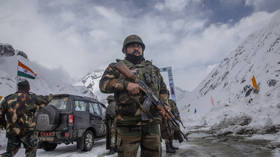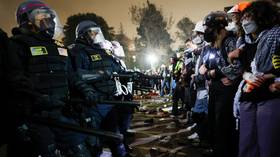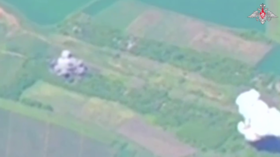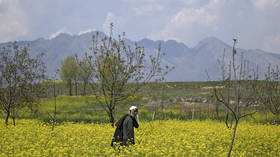Indian Army clarifies ‘game changer’ scheme after recruit’s death

The Indian Army said on Sunday that soldiers serving under New Delhi’s short-term army recruitment ‘Agnipath’ scheme, launched last year, will receive over 10 million rupees ($120,000).
The move comes after a row erupted on social media in the wake of a recruitee under the scheme losing his life while on duty at the Siachen Glacier, dubbed 'the world’s highest battlefield,' located in the eastern Karakoram mountain range in the Himalayas.
‘Agniveer’ Gawate Akshay Laxman, who hailed from the state of Maharashtra in western India, died due to “medical complications arising out of high-altitude conditions.” His death reignited last year’s debate over the scheme, with social media boiling with conflicting messages about financial assistance to the deceased’s next of kin.
Opposition leaders in India questioned whether the family would receive compensation for the soldier’s death. “No gratuity, no other military facilities for his service, and no pension to his family in martyrdom,” Rahul Gandhi, the leader of the largest opposition party, the Indian National Congress, posted on X (formerly Twitter). “Agniveer is a plan to insult the heroes of India,” he said.
The Indian Army issued a statement clarifying the compensation due to Laxman’s family and to the next of kin of other ‘Agniveers’ who may die in the line of duty. The army stated that as per the terms of engagement, an deceased recruit's family would receive over 10 million rupees ($120,000) as compensation.
Earlier in October, another ‘Agniveer,’ identified later as Amritpal Singh, died by suicide while on sentry duty in Jammu and Kashmir. However, since his death was “self-inflicted,” he was not accorded any benefits.
The ‘Agnipath’ scheme, introduced in 2022 to recruit soldiers below officer ranks, marked a complete overhaul of India’s recruitment to non-officer posts in the army, as it aimed to deploy fitter, younger troops to the frontlines. Initially aimed at people aged between 17.5 and 21 years old, the plan defines that successful candidates will join the armed services for four years, after which only 25% of them will be retained.
The scheme’s announcement triggered protests across India as detractors saw it as the ‘contractualization’ of jobs in the army. Most of the demonstrations were carried out by men and women preparing for the entrance exams held for coveted posts in the military. Critics argued that New Delhi’s decision to hire temporary soldiers would reduce their chances of getting permanent military jobs, which guarantee fixed salaries and pensions.
For his part, Indian Prime Minister Narendra Modi described the Agnipath scheme as a “game changer” in strengthening the military and making it ready for future challenges while stressing that ‘Agniveers’ recruited under the new model will make the armed forces “more youthful and tech-savvy.” The first recruits under the new model began their training in January this year. Over 5.4 million candidates registered for 46,000 jobs available
in the three services in the first phase (40,000 in the army and 3,000 each in the air force and navy), according to India’s defense ministry.












